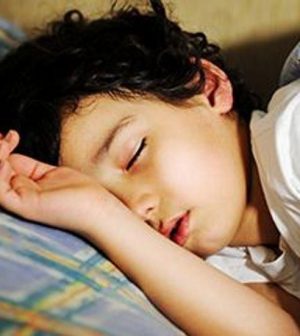- 10 Strategies to Overcome Insomnia
- Could Artificial Sweeteners Be Aging the Brain Faster?
- Techniques for Soothing Your Nervous System
- Does the Water in Your House Smell Funny? Here’s Why
- Can a Daily Dose of Apple Cider Vinegar Actually Aid Weight Loss?
- 6 Health Beverages That Can Actually Spike Your Blood Sugar
- Treatment Options for Social Anxiety Disorder
- Understanding the Connection Between Anxiety and Depression
- How Daily Prunes Can Influence Cholesterol and Inflammation
- When to Take B12 for Better Absorption and Energy
What Does ‘Long COVID’ Look Like in Kids?

Long COVID can be tough to diagnose in children, but there are a number of things to look for.
“Many children don’t have any symptoms when they have a COVID infection,” said Dr. Sindhu Mohandas, a pediatric infectious disease specialist and attending physician at Children’s Hospital Los Angeles. “So if the symptoms of long COVID appear later, it can be difficult to link them to the coronavirus.”
There is no simple nasal swab or other diagnostic test for long COVID. Instead, doctors have to assess a child’s pattern of symptoms and past exposure to the virus.
Symptoms can vary widely from patient to patient, but in kids, the most common long COVID symptoms are unusual tiredness/fatigue, headaches and difficulty concentrating (brain fog).
Other symptoms include shortness of breath, sore throat, unexplained fevers, fast heartbeat, chest pain, loss of smell or taste, muscle or nerve pain, sleep disorders, diarrhea, vomiting or constipation, anxiety and depression.
Long COVID symptoms can last more than four weeks after a COVID-19 infection and interfere with normal activities such as sports and schoolwork.
Along with symptoms, doctors would check for previous exposure to SARS-CoV-2. That’s easy if a child had a positive COVID test or symptoms. For those who weren’t tested or had no COVID symptoms, doctors look at family history and any known virus exposures for the child.
Antibody tests are another way to determine if a child had COVID-19.
“The one caveat is that if a child is vaccinated, the antibodies may be because of the vaccine and not infection,” Mohandas said in a hospital news release. “However, we can order a test that distinguishes between those different antibodies.”
While long COVID has no definitive cure, it’s important for kids to be diagnosed because the symptoms can often be managed.
“If you think your child might have long COVID, or you’re just worried about the symptoms, see your pediatrician,” Mohandas said. “Even if it’s not long COVID, there could be something else going on. Your doctor will be able to evaluate your child and decide if the child needs to be seen at a specialized center.”
More information
The American Academy of Pediatrics has more on long COVID.
SOURCE: Children’s Hospital of Los Angeles, news release, Dec. 8, 2021
Source: HealthDay
Copyright © 2026 HealthDay. All rights reserved.










